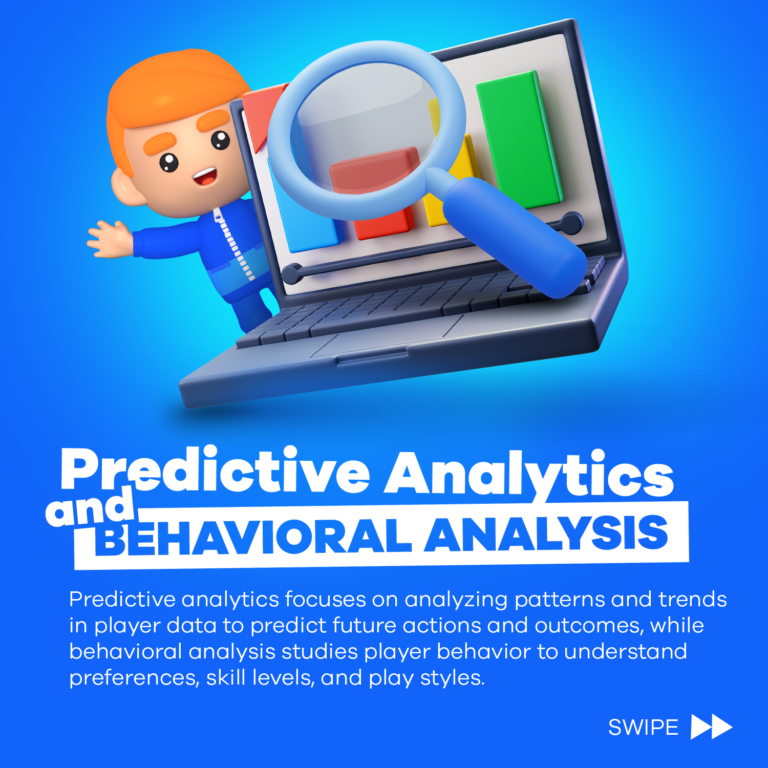BGREEN TV: Your Source for Green Innovations
Explore the latest trends and innovations in sustainable living, eco-friendly technology, and green entertainment.
Score More: The Predictive Analytics Playbook for Gamers
Unlock your gaming potential! Explore cutting-edge predictive analytics to boost your scores and dominate the competition. Score More today!
Unlocking Success: How Predictive Analytics Can Change Your Game
Unlocking Success: Predictive analytics can be a game changer for businesses aiming to enhance their performance and decision-making processes. By leveraging historical data and advanced algorithms, companies can identify trends and forecast future outcomes. This capacity allows organizations to anticipate customer needs effectively, minimizing risks while maximizing opportunities. For instance, in industries like retail and finance, predictive analytics empowers businesses to tailor their strategies more precisely, thereby improving customer satisfaction and boosting profitability.
Moreover, the implementation of predictive analytics doesn’t just stop at understanding customer behavior; it extends to optimizing internal operations as well. By analyzing data patterns, companies can streamline their processes, reduce operational costs, and improve resource allocation. For example, a manufacturer might use predictive models to foresee equipment failures before they happen, thus avoiding costly downtimes. In essence, with the power of predictive analytics, businesses can fundamentally transform their approach, driving sustainable growth and retaining a competitive edge in today's dynamic market.

Counter-Strike is a popular tactical first-person shooter game that emphasizes team-based gameplay and strategy. Players can choose to be part of either the terrorist or counter-terrorist teams, engaging in various game modes that require skill and coordination. For players looking to enhance their gaming experience, using a duel promo code can provide great benefits and bonuses.
The Science Behind Winning: Understanding Predictive Analytics in Gaming
The science behind winning in gaming has become increasingly reliant on the use of predictive analytics. At its core, predictive analytics involves leveraging data and statistical algorithms to identify the likelihood of future outcomes based on historical data. In the gaming industry, this means analyzing player behavior, game mechanics, and environmental factors to forecast player success or potential pitfalls. For instance, developers utilize predictive analytics to tailor gaming experiences, ensuring high engagement and satisfaction by anticipating player needs and challenges. This data-driven approach not only improves gameplay but also enhances the overall player experience.
Moreover, applying predictive analytics can significantly influence competitive gaming. By utilizing comprehensive data models, players and teams can predict opponents' moves, optimize strategies, and ultimately enhance their chances of winning. For example, in esports, teams analyze past matches, studying everything from individual player metrics to team dynamics, allowing them to devise strategies that exploit their opponents' weaknesses. The science behind winning thus transforms not just game design, but also the competitive landscape of gaming, making data analysis an essential tool for both developers and players alike.
Can Predictive Analytics Really Boost Your Performance?
Predictive analytics has emerged as a powerful tool for businesses looking to enhance their decision-making processes and overall performance. By utilizing historical data and statistical algorithms, organizations can forecast future trends, customer behavior, and potential risks. This approach allows companies to not only identify opportunities for growth but also optimize their operations. For instance, businesses can tailor marketing strategies based on customer insights, leading to better engagement and conversion rates. As industries continue to evolve, embracing the capabilities of predictive analytics can set a strong foundation for sustained success.
When implemented effectively, predictive analytics can significantly impact several key performance indicators (KPIs). Companies can improve profitability, enhance customer satisfaction, and reduce churn rates by making data-driven decisions. For example, in the retail sector, analytics can predict stock levels needed for peak periods, minimizing lost sales due to inventory shortages. Moreover, by analyzing customer interactions, businesses can create personalized experiences that resonate with their audience, ultimately boosting loyalty and revenue. Embracing this technology is not just a trend; it's becoming essential for maintaining a competitive advantage in today's data-driven landscape.